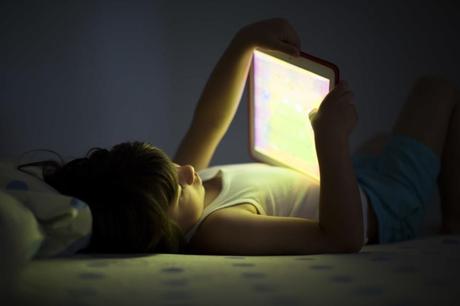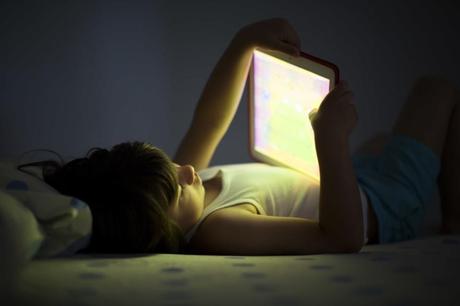
With the "Sephora Kid" epidemic making headlines, parenting, or the lack thereof, has become a larger cultural discourse. While parents have made socially questionable decisions since the birth of the first child, these choices didn't always stem from people on the Internet judging their every move.
Various renditions of the phrase "I'm not raising my kid like this" have plagued the internet since Sephoragate. These comments usually come from expectant parents and young people who criticize the parenting decisions of older generations. As Gen Z becomes parents, they plan to end the rollout of things that millennial and Gen
The term itself refers to a generation of children born into the smartphone boom who grow up dependent on technology such as touchscreens and constant internet access. While iPad kids were previously a loosely defined term for children getting their hands on devices in social situations, they are shifting from parenting to scientific discourse.
In a 2015 study published in the American Academy of Pediatrics (AAP), researchers recruited 350 children, ages six months to four years, and examined how much exposure they had to mobile devices. About 97 percent of respondents used technology such as smartphones and tablets, and most used them before becoming one.


The extent to which children used them was the biggest concern. According to the study, about 75 percent of children had their own device by the age of four. When they were two, the authors wrote that they "spent similar screen time" and used devices daily. Some researchers even wonder whether children are at risk of becoming addicted to screens.
"Watching screens or television has more to do with the release of dopamine and serotonin in your brain, it makes them feel relaxed. In excessive amounts, children can feel addicted," says Salima Kerai, a Ph.D. candidate at the University of British Columbia who studies childhood and behavior and different stages of development and who was not involved in the AAP study, told The Daily Beast.
The story continues
"Existing data suggest that passive screen viewing in particular is associated with less robust developmental milestones," Marc Potenza, the Steven Southwick Professor of Psychiatry at Yale School of Medicine and who was not involved in the study, told the Daily Beast . "For early development in particular, childhood, it is best not to let babies look at screens."
The problem has been growing for years. In a 2020 study on parenting and technology by the Pew Research Center, researchers found that about 61 percent of parents of children age 11 or younger received advice or information about screen time from a doctor or other medical professional. The same survey also highlighted parents' differing reactions to a tablet and mobile devices, with 65 percent of parents finding it acceptable for a child to have a tablet before the age of 12 - hence the 'iPad child' label Gen Alpha.
The Luddite Generation
For Generation Z, who will soon take the reins, moving away from the iPad trope is the goal - especially in light of the overwhelming negative evidence.
"The generations before me have been too lenient with their children's screen time because it is used in a careless way," Ira Jade, a 17-year-old from New York, told The Daily Beast. "Technology is a useful tool, but parents spend an inordinate amount of time using it as babysitters every day."
"I would liken what's happening now to parents dropping their children, who can't swim, into a pool without help, watching them drown and then telling them to tread water," said Zion Weeks, a 21-year-old of Delaware, told The Daily Beast.
These conversations go beyond criticism of older generations. Generation Z is slowly moving away from the technology they grew up with. A 2023 report from digital marketing site Squarespace surveyed 4,000 people and found that more than 70 percent of Gen Z wanted to disconnect from their phones. In 2023, the "dumb phone" movement inspired by Gen Z increased sales of flip phones as the generation sought to reduce screen times and return to the early days of connectivity, one without social media. These "fewer smartphones" are part of the larger digital detox movement among Generation Z.
Can a 'kosher' phone cure your tech addiction?
At the start of the pandemic in 2020, General Zer Emma Lembke launched the LOG OFF movement, which aimed to give teens control over their social media use by Big Tech. Organizations like LOG off are now working to "empower youth to tackle the complexities of social media and its impact on younger generations."
When it comes to parenting, some Gen Zers have even created parameters they want to set for their children.
A survey conducted by Everyday Health Group Pregnancy & Parenting in 2023 found that Gen Z mothers placed more emphasis on ensuring technology-free time for children than their Millennial counterparts. While 50 percent of Gen Z mothers value free time with their children, compared to 41 percent of Millennial mothers who value the same.
The same survey found that 56 percent of Generation Z agree with setting screen time limits, compared to 50 percent of millennials.
Jade explains that the right age to give her child internet access would be around six or seven, while still opting for a computer with limited website access that would provide educational or child-safe entertainment. "A portable device such as an iPad or phone should not be given until the teenage stage, perhaps 15 years and older," she says.
While answers vary from parent to parent, age restrictions are among the biggest ways the generation wants to regulate screen time.
Weeks talks about how he plans to teach his children media literacy before introducing them to devices. Ensuring that his children know how to moderate themselves, avoid dangers and not indulge mindlessly on the Internet is his main concern. Weeks didn't want to give his children an iPad or iPhone until they were 13.
Then there are the growing concerns about health care. "These devices give you instant, unlimited amounts of dopamine. A lot of kids will become addicted to their phones at a young age," Kevin C, a 22-year-old from Texas, told The Daily Beast. "I think children should be bored sometimes. Boredom can be a good thing because it encourages you to find entertainment."


No iPad ideology
Of course, these restrictions may be easy to talk about in theory for Gen Zers who don't have kids yet, but even those who have just reached parenthood are talking about what they're already doing to prevent long-term access to screens for their kids.
Theresa Campbell, a 24-year-old from Arkansas, told The Daily Beast that this means putting the "no iPad kid" ideology into practice as she and her husband raise their 1-year-old son Joseph, whose name has been changed to protect his privacy.
"My son Joseph listens to a Spotify playlist we created with nursery rhymes," Campbell explains. "He doesn't have his device."
Campbell has limited their son's use of devices during social gatherings. Explain how Joseph should not use portable devices during dinner parties. This type of parenting is also made possible by other adults and children, who help keep their children engaged. "He doesn't need an iPad to distract him," she says.
Meet Laika, the chatbot that acts like a social media-obsessed teenager
However, this type of parenting isn't the easiest, especially in a social landscape where wearables are increasingly becoming the norm for toddlers. For Campbell and her husband, this means intentionally doing activities at home or with friends, rather than going out because their son can't sit still for long periods of time. She explains that he wants to run around without a screen and be active, which is not feasible in a restaurant.
Sometimes this means leading by example. "My husband and I could do something about not using our devices around Joseph. Although his access is limited, he is very interested in what we do on our phones and computers. We don't always set the best example by limiting our use," she explains.
For Gen Z, challenging the increasingly digital age of parenthood means unplugging for the sake of their children, and it's a trade-off they're willing to make if it means sacrificing their digital autonomy must maintain. Screen time and device restrictions are just another way Gen Zers want to stay in control of their children's well-being, at a time when Big Tech and media companies have power over every minute they spend online.
For them it is an act of resistance, but also a duty. As Kevin puts it: "It's easy to make fun of the iPad kid, but it's largely learned behavior. As adults, we have an even greater responsibility to do something about it. "
Read more at The Daily Beast.
Get the Daily Beast's biggest scoops and scandals delivered straight to your inbox. Register now.
Stay informed and get unlimited access to the Daily Beast's unparalleled reporting. Subscribe now.
